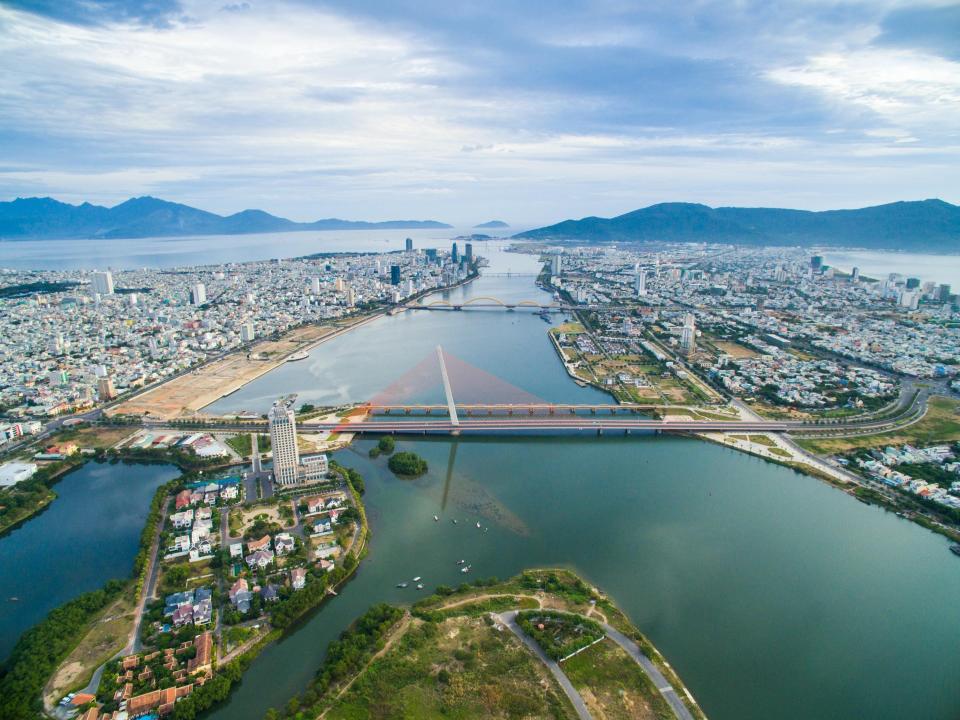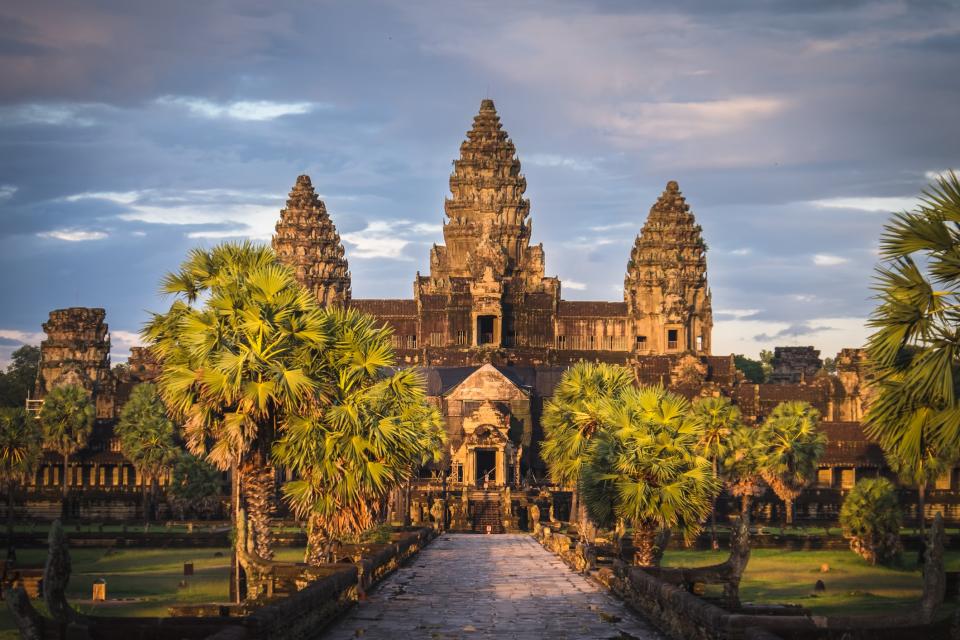'Locals were scared of us' – meet the backpackers who went on gap years during the pandemic

Every day, for the past couple of decades, hundreds of gap year students and professionals on a sabbatical land at Bangkok’s Suvarnabhumi airport to kick off months-long journeys along the well-trodden paths of the ‘Banana Pancake Trail’, a classic, loosely defined route through Thailand, Laos, Cambodia and Vietnam, lined with budget-friendly accommodations, postcard sights and plenty of boozy bars on palm-fringed beaches.
This year’s cohort, however, saw their once-in-a-lifetime trip take an unexpected turn when the coronavirus outbreak resulted in border closures and emergency travel warnings.
But, while many backpackers scrambled to secure a spot on repatriation flights, a more intrepid crop of travellers decided to carry on travelling.
“We were in Laos around mid-February when we realised that Covid-19 was developing as a global pandemic,” says Lauren Beebe, a traveller from Manchester on a year-long sabbatical trip with her partner. “The situation was changing very quickly. We received a government notification advising all UK nationals abroad to return home, but watched flight costs spiral, upwards to £8,000 for a one-way ticket. We weren’t in a rush, so we flew to Cambodia instead. We’ve been there since.”
Croatian traveller Arijana Tkalčec, who has been in Vietnam since March, adds: “Flying home in this situation didn’t sound appealing to me, as many Covid-19 cases were traced back to flights. And what if we got stuck at another airport? It was too risky.”
As southeast Asia went into lockdown and moving around became difficult, many of the remaining travellers settled down. Beebe and her partner took a three-month lease at a guesthouse in Kampot (a coastal town in southern Cambodia with a seizable expat community), while Tkalčec moved temporarily into an apartment in Da Nang in central Vietnam.

In Thailand, Argentinian traveller Martin Aristia hit the proverbial lockdown-jackpot when he and his partner found themselves stuck on Koh Yao Noi, an idyllic small island just off Phuket, where they spent four months in a bungalow on the beach.
With movement restrictions slowly lifting around May, the travellers re-emerged in a very different landscape. “Vang Vieng is a ghost town,” says Colombian traveller Esteban Vianjando about the party-hard backpacker hotspot in central Laos, where he currently volunteers at a hostel in return for food and lodging.
He reports that only a handful of hostels remain open, each occupied by only one or two long-term guests. Parties are no longer held, partly because alcohol has been prohibited in restaurants and nightclubs.
“I guess there are about 200 travellers remaining in the country. A lot of them left in July and August on repatriation flights,” he says. "Another flight is planned for the beginning of October, so it’s going to be even emptier."
In Cambodia, Beebe returned to the country's main tourist draw, the ancient temple complex of Angkor Wat, for a yoga retreat. "It was still relatively lively when we came in March, but on our second visit, the scene had completely changed,” she says. "Many workers left town to support their families in the countryside, so we saw many vacant buildings and tumbleweed in the streets. It was a very sobering experience.”

Planning these post-lockdown travels requires a change in strategy, too. Guidebooks and blog posts have largely lost their use as transportation schedules have changed to adapt to the decreased demand, and many of the top-rated hostels and restaurants are no longer open.
The presence of fresh-faced foreigners also occasionally draws ire from the local communities.
“In some places, locals were scared of us, and we couldn’t interact with the community the way we were hoping to,” says Tkalčec, adding that people are getting more relaxed again now that the initial virus scares have subsided.
In Thailand, Aristia experienced the same: “On a few occasions, we felt a bit of rejection by local people,” he says. "They questioned us about where we were coming from and how long we had been in Thailand, and covered their faces when they saw us. We were even refused at a guesthouse in southern Thailand.” He also adds that most of the experiences, however, have been positive, and he managed to make a lot of Thai friends along the way.
“To avoid imposing ourselves on new communities and potentially cause concern among locals, we’re travelling at a very slow pace,” Beebe says. “It’s also a great way to get a real feel of the Cambodian culture. We chose to stay in rural family homestays to support the communities who have been hit hardest by the lack of tourism.”
While forging friendships with fellow travellers is often seen as a gap year highlight, most travellers The Telegraph spoke to say that they now meet very few others on the road or in guesthouses, where they’re often the only guests.
“Of course, we all want to meet new people and exchange cultures,” Viajando, who travels solo, says. “But I don’t mind the solitude. I have time for meditation and exercise – I start to know myself a lot better. The travellers all agree that it’s just a small price to pay for this unique experience. “We get to see some of Vietnam’s most beautiful places without any crowds,” Tkalčec says. “It’s great for pictures. We don’t have to rush, and are able to experience these destinations to the fullest.”
With borders still closed (or, in Cambodia’s case, very difficult to cross), visas become a concern. In Vietnam, Laos, and Cambodia, tourist visas have been automatically extended, but the Thai government has ended its visa amnesty at the end of September. For some, this means that the pandemic in paradise comes to an end. Those who fail to secure new visas and remain in the Kingdom with an expired visa, could face arrest.
Aristia is among the travellers forced to leave. “We’re disappointed and sad to move on, but feel fortunate that it was Thailand where we stayed during the worst time of the pandemic,” he says.
Beebe and her partner are currently considering options to continue their sabbatical outside of Cambodia, but have no intentions to return home yet.
“At first, friends and family back in the UK were worried about our safety. But we’re feeling very safe here,” she says. “Sanitation standards are incredibly high. Buses are thoroughly cleaned between shifts, and even our backpacks get disinfected before boarding. With Covid-19 cases rising back home, we now actually worry about our family and friends there.”


